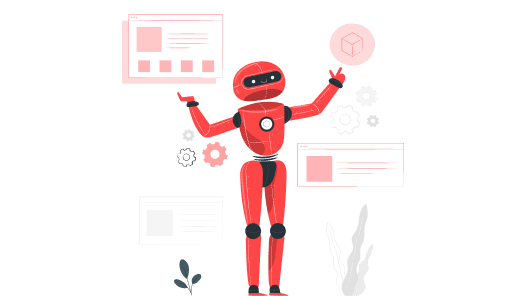Summary:
- Property management automation simplifies booking by sending instant confirmations, updating availability calendars, and automating check-in and check-out procedures.
- Automated pre-stay emails provide guests with crucial information, while review requests boost your property’s online reputation.
- Automation schedules routine maintenance tasks coordinates cleaning services, and manages inventory restocking.
- Dynamic pricing algorithms adjust rates based on demand, competition, and local events. Automated tools monitor competitors’ pricing strategies, and property managers can create and manage special offers and discounts effortlessly.
- Automation streamlines financial tasks, from expense tracking to reporting and lodging tax calculation and filing.
In the ever-evolving world of vacation rentals, property managers face many responsibilities, from marketing and guest communication to maintenance and financial management. Property management automation has emerged as a game-changer, allowing property managers to streamline operations, reduce workload, and enhance efficiency. This blog will explore how to automate property management and specific tasks that vacation rental property managers can automate to optimize their business.

What is Property Management Automation?
In property management, automation refers to using tools or processes that let technology handle tasks for you, reducing your manual workload. These tools, like software and apps, streamline operations, simplify workflows, and automate repetitive tasks. It doesn’t mean replacing staff with technology but rather making the most time-consuming tasks easier to handle for you and your team. At the same time, automation optimizes your management techniques. With recent shifts in tenant demographics, particularly among millennials and Gen Zers, renters now expect residences to be up-to-date with technology. By embracing property management automation, you make your job easier and satisfy your residents’ expectations.
Bonus Read: 11 Ways to Maximize Rental Income through PriceLabs
How does AI help in Property Management Automation?
AI property management harnesses technology that mimics human intelligence to execute management tasks. Typically, AI technologies leverage machine learning to analyze data, make decisions, or enhance operations based on that data.
According to a 2021 study by Clockify, workers spend an average of 219 hours annually on repetitive tasks that could be automated. Property management stands out in this regard due to the significant number of tasks in this category.
Property managers often feel their workload is never-ending, as they are the primary point of contact for staff, residents, leasing agents, and contractors. Hence, efficient time management is crucial. AI tools offer a solution by automating redundant tasks and continually improving their performance through machine learning.
Consider tasks that typically require your presence, such as facilitating lease renewals, rent collection, or package deliveries. AI can streamline these processes.

1. Booking and Reservation Management
Automation software can take the hassle out of booking and reservation management. Property managers can:
Automate Booking Confirmations: Once a booking is confirmed, send personalized confirmation emails to guests, including all necessary details, such as check-in instructions and property rules.
Manage Availability: Automatically update calendar availability across multiple platforms, preventing double bookings and ensuring accurate availability information.
Handle Check-in and Check-out Procedures: Send automated reminders and instructions to guests before their arrival and departure, reducing the need for manual communication. You can also mention your early check-in and late check-out policies and charges if you have any.
During Stay Message: You can send automated messages informing your guests of discounts for booking extensions or Airbnb add-on services that you offer. You can also suggest activities to do in your city or places to visit to enhance their experience.
Example: Airbnb’s integration with booking management tools allows property managers to sync their calendars across various booking platforms, reducing the risk of overbookings.
Bonus Read: Optimizing Your Reservation Management with Booking Extranet
2. Guest Communication
Efficient communication with guests is essential for a positive experience. Automated property management software can assist in the following:
Pre-Check-in Emails: Send automated pre-check-in emails containing essential information, such as property access codes, local recommendations, FAQs, arrival information, wifi, laundry facilities, and amenities in general.
Review Requests: Automatically request reviews from guests after their stay, encouraging them to share their experiences and improve your property’s online reputation. You can also request guests to add your listing to their OTA wishlist to increase visibility.
Emergency Alerts: Set up automated alerts for emergencies or urgent issues, such as a smoke detector going off or a power cut. This will ensure quick response times.
Example: OTA or booking channels like HostAway offer automated messaging features allowing property managers to schedule guest messages at specific times, enhancing communication efficiency. The new AI tool also allows property managers to answer guest’s questions automatically.
3. Cleaning and Maintenance
Keeping vacation rentals in top condition is vital. Airbnb even allows you to charge an extra Airbnb cleaning fee to pay for cleaning your house after every guest’s stay. However, Automation can help by:
Maintenance Scheduling: Set up automated maintenance schedules for routine tasks like HVAC servicing, pool cleaning, or property inspections.
Cleaning Services: Connect with cleaning services through automated platforms to schedule cleaning services after a guest checks out.
Inventory Restocking: Use sensors and inventory management software to reorder supplies when running low automatically.
Example: Automatebnb is a comprehensive platform that offers a range of powerful features, including smart scheduling and automatic synchronization with popular rental platforms like Airbnb, VRBO, Hostaway, and TripAdvisor. It simplifies and streamlines the cleaning process by automatically syncing with rental platforms’ calendars, sending cleaning requests, and enabling efficient team management. The platform also provides real-time notifications to inform businesses and facilitates hassle-free payment collection.
Bonus Read: Airbnb Cleaning Checklist + Free Template, Hire Cleaning Crew

4. Pricing and Revenue Management Automation
Optimizing pricing for maximizing revenue is a continuous task. Automation can be present by:
Dynamic Pricing: Implement dynamic pricing tools that adjust rates based on demand, seasonality, and local events.
Competitor Analysis: Use automated tools to monitor competitors’ pricing strategies and adjust your rates accordingly.
Special Offers and Discounts: Automate by creating and managing special offers or last-minute discounts to attract more bookings.
Example: Tools like PriceLabs automate dynamic pricing services by leveraging advanced algorithms and real-time data analysis. It monitors market conditions, such as demand fluctuations, local events, and competitor pricing, to adjust rental property rates dynamically. This automation ensures that property owners and managers maximize their revenue potential without requiring manual rate adjustments. PriceLabs also factors in historical booking patterns, seasonality, and booking lead times to optimize pricing strategies, resulting in a seamless and hands-free approach to setting the most competitive and profitable rates for vacation rentals.

5. Financial Management and Reporting
Keeping track of finances and generating reports is crucial. Automation can help by:
Expense Tracking: Automate expense tracking by connecting bank accounts and credit cards to accounting software.
Reporting: Set up automated reporting to gain insights into revenue, occupancy rates, and expenses.
Tax Calculation and Filing: Use tax automation tools to calculate and file lodging taxes accurately and on time.
Example: QuickBooks and Xero streamline financial management through automation. They automate data entry by importing and categorizing transactions, offer automated invoice generation and receipt scanning, facilitate automatic bill payments, simplify payroll processing, and provide customizable financial reporting with automated scheduling.
Bonus Read: 6 Proven Steps to Master Your Airbnb Pricing Strategy

6. Guest Reviews and Feedback
Collecting guest feedback is vital for property improvement. You need to know how to get more guest reviews for your property. Automation can assist by:
Automated Surveys: Send post-stay surveys to guests to gather feedback on their experience.
Review Management: You can automate collecting, managing, and analyzing customer reviews for your listing. Also, you can automatically gather customer feedback through customized review request templates.
Example: Review platforms like Trustpilot offer automation tools to help businesses effectively manage guest reviews by streamlining the review collection and response process. These tools offer features such as automated review request emails that are triggered after a guest’s interaction, making it easy to solicit feedback. They also use sentiment analysis to categorize reviews as positive, negative, or neutral, allowing businesses to prioritize their responses. Additionally, automation tools can route reviews to an organization’s appropriate team or department, ensuring prompt and relevant responses.
7. Marketing and Promotion
Effective vacation rental marketing is essential for attracting guests. Automation can help by:
Email Marketing: Automate email campaigns for marketing promotions, newsletters, and updates.
Social Media Scheduling: Use social media automation tools to schedule and manage posts on multiple platforms.
Example: Tools like Mailchimp and Hootsuite offer email marketing and social media management automation features.
Bonus Read: How to use AI for Vacation Rental Marketing

8. Rent Collection
Property management automation can significantly aid in rent collection by streamlining the process and reducing manual intervention. Here’s how:
Automated Reminders: Property management software can automatically send rent reminders to tenants via email or SMS, reducing the likelihood of missed payments.
Scheduled Payments: Automation allows for setting up scheduled payments or recurring billing, ensuring that rents are collected on time without requiring manual follow-up.
Online Payment Portals: Providing tenants with online payment portals allows them to conveniently pay their rent electronically, reducing the need for physical checks and manual processing.
Integration with Accounting Software: Automation tools can integrate with accounting software to automatically record rent payments, eliminating the need for manual data entry and reducing errors.
Tenant Communication: Automated communication tools can handle inquiries, address tenant concerns, and provide payment assistance, enhancing tenant satisfaction and reducing property managers’ workloads.
Example: Tools like Buildium, Rentec Direct, and AppFolio help with rent collection automation.
Overall, property management automation streamlines rent collection processes, improves efficiency, reduces administrative overhead, and helps ensure consistent cash flow for property owners.
Conclusion
Property Management automation is a powerful ally for vacation rental property managers. By automating tasks across booking management, guest communication, maintenance, pricing, financial management, guest feedback, and marketing, property managers can save time, reduce manual errors, and ultimately provide a better guest experience. Embracing automation is a convenience and a strategic move to stay competitive in the dynamic vacation rental industry.
Frequently Asked Questions
What is property management automation?
Property management automation involves leveraging technology and software solutions to streamline and simplify various aspects of rental property management. It encompasses automating tasks such as guest communication, booking and reservations, maintenance and repairs, dynamic pricing, expense tracking, lodging tax compliance, reporting, analytics, marketing, and advertising. By implementing automation tools and systems, property managers can save time, reduce manual effort, enhance the guest experience, optimize revenue, and ensure compliance with local regulations.
Why do property managers need automated solutions?
Property managers need automated property management solutions to streamline operations, save time, reduce manual errors, enhance guest experiences, and boost revenue. Automation tools can handle tasks like guest communication, reservation management, pricing optimization, and maintenance requests, allowing property managers to focus on strategic decisions and provide better service to guests. With automation, they can adapt to changing market conditions, ensure compliance with regulations, and stay competitive in the vacation rental industry.
Is automation a game-changer for property management?
Automation reduces manual errors, improves guest experiences, enhances marketing efforts, and ultimately increases revenue. Property managers can optimize pricing, manage reservations, and communicate with guests seamlessly. It also allows them to stay competitive, adapt to market trends, and focus on strategic growth. In a highly competitive industry like vacation rentals, automation is a powerful tool that can significantly impact a property management business’s success.
About PriceLabs
PriceLabs is a revenue management solution for the short-term rental and hospitality industry, founded in 2014 and headquartered in Chicago, IL. Our platform helps individual hosts and hospitality professionals optimize their pricing and revenue management, adapting to changing market trends and occupancy levels.
With dynamic pricing, automation rules, and customizations, we manage pricing and minimum-stay restrictions for any portfolio size, with prices automatically uploaded to preferred channels such as Airbnb, Vrbo, and 100+ property management and channel integrations.
Every day, we price over 300,000+ listings globally across 135+ countries, offering world-class tools like the Base Price Help and Minimum Stay Recommendation Engine. Choose PriceLabs to increase revenue and streamline pricing and revenue management. Sign up for a free trial at pricelabs.co today.






